A Power of Attorney (PoA) is a key legal document in Turkey, allowing individuals to delegate specific authorities to an "agent" to perform tasks on behalf of the "principal" and at their expense. It acts as a written authorization for representation in a specified activity.
A PoA is highly useful in Turkey when the principal cannot be physically present for business or personal matters, such as real estate transactions, business establishment, or legal proceedings. It facilitates international engagement by allowing legal and financial processes to continue despite distance, accommodating global participation while ensuring local control through strict notarization and translation.
Key parties are the Principal, who grants power and defines its scope, requiring their signature and passport copy for validity.
Agent receives power and acts on the principal's behalf, requiring trust. Generally, anyone 18+ can be an agent, but for court representation, only a licensed lawyer can be appointed. The principal's physical presence and direct interaction with the notary are mandatory for signing the PoA, ensuring intent verification and safeguarding against fraud.
Core Requirements for a Valid Turkish PoA
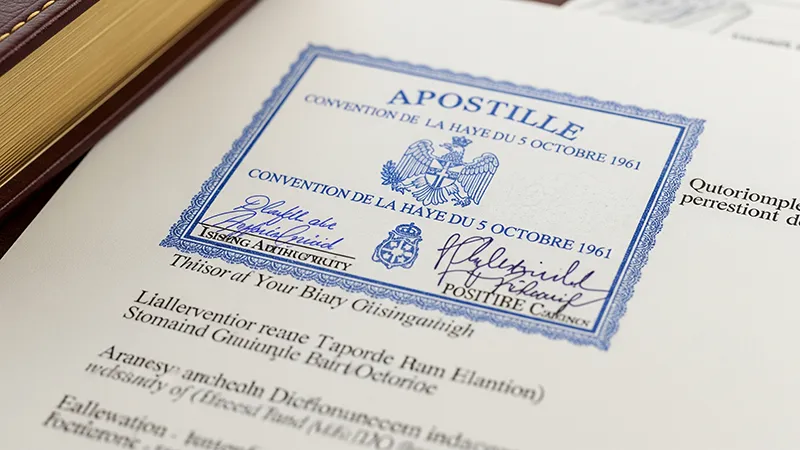
Obtaining a legally recognized Power of Attorney in Turkey necessitates adherence to several stringent requirements, distinguishing it from processes in many other jurisdictions.
The Principle of Specificity: Detailing Granted Powers
Turkish PoAs are highly detailed; every authority granted must be explicitly described. If an authority isn't listed, the agent cannot perform it. This strict specificity requires meticulous drafting to avoid omissions that could invalidate the PoA for crucial tasks, emphasizing the need for expert legal counsel.
Mandatory Notarization and Certification
For legal validity in Turkey (e.g., for land registry, courts, banks), a PoA must be notarized. This can be done at a Turkish notary if the principal is present , or abroad at a Turkish consulate or by a foreign notary.
Language Considerations and Official Translation
Language is crucial for PoA validity. If issued in Turkey and the principal doesn't speak Turkish, a sworn translator must be present during notarization. If issued abroad in a foreign language, it must be officially translated into Turkish by a sworn translator before use in Turkey. This multi-layered process (notarization, apostille/consular certification, translation) bridges legal systems, ensuring authenticity and legal actionability. Failure in any step invalidates the PoA.
Granting a PoA While in Turkey
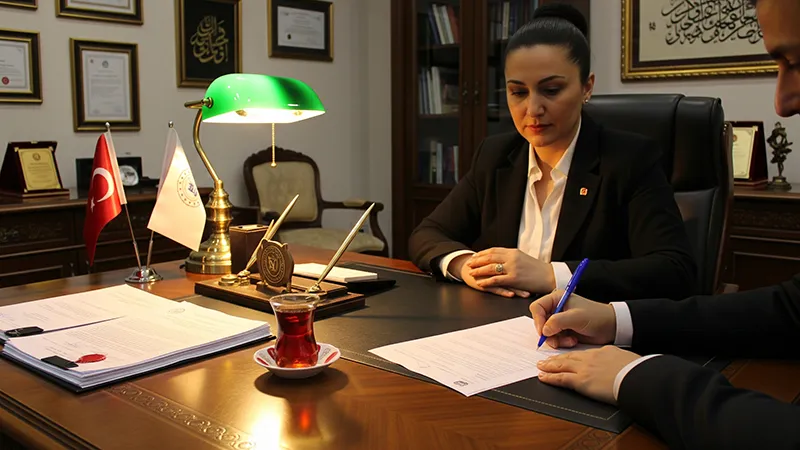
Issuing a PoA in Turkey is straightforward and efficient for those physically present, compared to obtaining one from abroad.
Step-by-Step Process at a Turkish Notary Office
The local PoA process involves: . Principal and agent visiting a Turkish notary with the principal's passport. . Principal explaining desired powers.
Notary drafting the PoA in Turkish, with a sworn translator if needed. 4. Both parties reviewing and signing in the notary's presence. 5. Notary stamping and registering the document, providing an original copy to the agent for official use. This is the most efficient method if in Turkey.
Required Documents for Local Issuance
Local PoA issuance requires: principal's valid passport or Turkish ID/Mavi Kart ; agent's ID (Turkish/Mavi Kart or foreign) ; principal's tax ID for financial transactions ; current addresses for both ; and purpose-specific documents like a land registry extract or divorce decree.
Granting a PoA from Abroad (Outside Turkey)
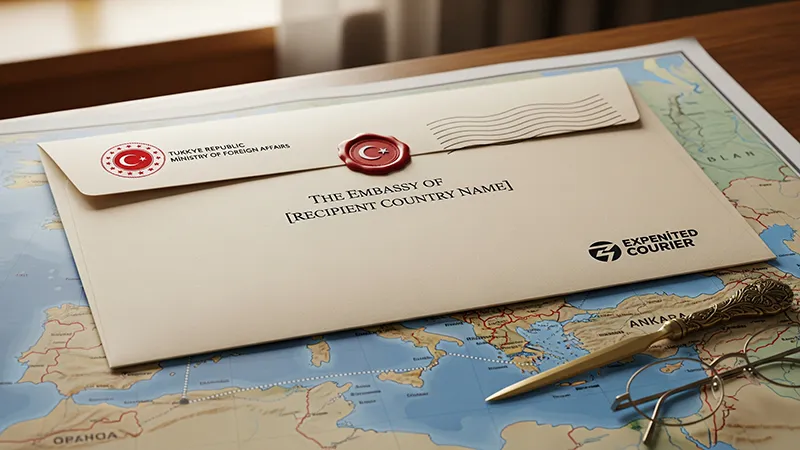
Obtaining a PoA from abroad is a valid option for those not in Turkey, though it's longer and requires more verification than local issuance. This international process includes drafting, notarization, authentication, and apostille.
A. Issuing PoA via Turkish Consulates Abroad
Non-Turkish citizens can create PoAs at Turkish consulates abroad. If the principal doesn't speak Turkish, a sworn translator registered with the consulate can assist. Consulates often use standard PoA texts, so for complex matters, it's advisable to consult a Turkish law firm beforehand to prepare a specific text, minimizing risks and ensuring compliance with Turkish law.
B. Issuing PoA via Foreign Notaries
Creating a PoA through a foreign notary involves a more intricate multi-step validation process:
- Drafting the PoA to Turkish Standards (including photo requirements): Drafting a PoA via a foreign notary is complex. It must be in Turkish or with a certified Turkish translation, adhering to Turkish legal standards. For certain transactions, a passport-size photo of the principal (colored, <6 months old, full face visible) must be included on the top left, with a copy of their passport's first page.For land registry, the photo is mandatory and must bear a notary stamp, aligning with the PoA text. Some foreign notaries may refuse to attach and stamp the photo, invalidating the PoA for Turkish land registry use. This photo requirement is a crucial security measure for high-value transactions.
- The Notarization Process: Verifying Identity and Signature: The principal must sign the PoA before a local notary public, who verifies identity, witnesses the signature, and notarizes the attached photo and passport copy, authenticating the document.
- Authentication by Local Authorities (e.g., County Clerk): After notarization, the document may need authentication by a local authority (e.g., County Clerk) to verify the notary's credentials.
- The Apostille Convention: Ensuring International Legal Recognition: If the principal's country is a Hague Apostille Convention signatory, the notarized document must be legalized with an Apostille for international legal recognition and acceptance in Turkey.
- Certification for Countries Not Party to the Hague Convention: For PoAs from non-Hague Convention countries, the document cannot be apostilled; it must be certified by the Turkish consulate in that country for validity in Turkey.
- Securely Sending Documents to Turkey: After notarization, authentication, and apostille/consular certification, the original document must be securely couriered to Turkey. There, the lawyer or agent will arrange official Turkish translation and registration at a Turkish notary. Foreign-issued PoAs often face skepticism from Turkish institutions like land registry and banks, potentially causing delays or rejection, even if formally correct. This often requires an experienced Turkish lawyer to ensure acceptance.
Essential Documents and Information for Your PoA
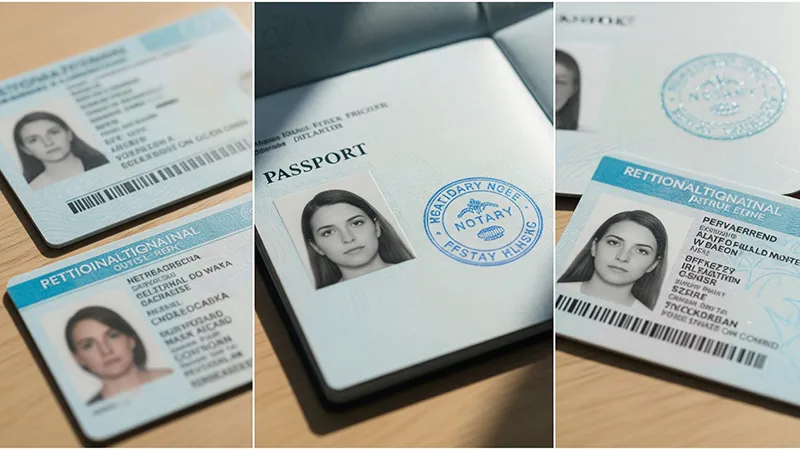
The accurate provision of specific documents and information is paramount for the validity and acceptance of a Power of Attorney in Turkey.
Identification Documents for Both Principal and Agent
Both principal and agent need a copy of their ID and Turkish identification number (T.C. Kimlik Numarası / Mavi Kart Numarası). Acceptable IDs include Turkish ID, nüfus cüzdanı, foreign ID, or Blue Card. When notarizing abroad, Turkish citizens should include their Turkish ID or "Mavi Kart" with their foreign ID/passport.
The type of ID used affects PoA validity for specific transactions; a driver's license, for instance, is not accepted by the land registry office for property matters. Turkish authorities have a hierarchy of accepted identification, especially for high-stakes transactions, making legal guidance crucial to avoid rejection.
Current Addresses of All Parties
Current and complete addresses for both principal and agent are mandatory in the PoA.
Purpose-Specific Official Documents (e.g., Land Registry Extract, Divorce Decree)
Additional official documents may be needed based on the PoA's purpose, such as a land registry extract for real estate, a divorce decree, a civil registry extract, or other supporting documents like old IDs or name change certificates.
Passport Photo Requirements: Critical for Specific PoA Types
For critical matters like land registry transactions (purchase/sale, inheritance, gift, pre-emption), construction contracts, vehicle sales, and divorce, the Turkish PoA must include a passport photo of the principal with a notary stamp.
Photo specifications are strict: colored, no older than six months, with the entire face clearly visible. For land registry use, a photo with a notary stamp is mandatory and links the principal's identity to the document, preventing fraud, and reinforcing strict Turkish legal procedures.
To provide a clear overview of these requirements, the following table summarizes the key documents and photo specifications:
- Document Type: Principal's ID
- Requirement/Notes: Copy required; must be national ID or passport for land registry matters (driver's license not accepted)
- Relevant PoA Type: All PoAs; critical for Land Registry
- Document Type: Agent's ID
- Requirement/Notes: Copy required
- Relevant PoA Type: All PoAs
- Document Type: Principal's Turkish ID/Mavi Kart
- Requirement/Notes: Crucial to include alongside foreign ID/passport if Turkish citizen, for foreign notarization
- Relevant PoA Type: Foreign-issued PoAs
- Document Type: Principal's Address
- Requirement/Notes: Required
- Relevant PoA Type: All PoAs
- Document Type: Agent's Address
- Requirement/Notes: Required
- Relevant PoA Type: All PoAs
- Document Type: Land Registry Extract (Tapu Senedi)
- Requirement/Notes: Required for property-related transactions
- Relevant PoA Type: Real Estate PoAs
- Document Type: Divorce Decree
- Requirement/Notes: Required for divorce proceedings
- Relevant PoA Type: Divorce PoAs
- Document Type: Civil Registry Extract (Nüfus Kayıt Örneği)
- Requirement/Notes: Required for certain civil matters
- Relevant PoA Type: Specific Civil PoAs
- Document Type: Passport Photo
- Requirement/Notes: Mandatory for Land Registry, Construction Contracts, Vehicle Sales, Divorce. Must be colored, no older than 6 months, entire face visible. Notary stamp on photo required for Land Registry.
- Relevant PoA Type: Land Registry, Construction, Vehicle Sales, Divorce PoAs
Types of Power of Attorney and Specific Considerations

The scope of a Power of Attorney in Turkey can be broadly categorized as general or limited, with specific considerations applying to various types of transactions.
General vs. Limited PoA: Choosing the Right Scope
A principal can grant general or limited authority. General PoAs must still explicitly define each power category. Limited PoAs grant specific, narrow powers, recommended for risk minimization and clear boundaries. This aligns with Turkish law's emphasis on explicit authorization, offering greater control. The choice depends on trust and task complexity.
A. PoA for Real Estate and Land Registry Matters
For real estate matters, a PoA can authorize an agent to handle everything from the initial property viewing tour and ordering a mandatory property appraisal report to handling the final transaction
PoAs for real estate and land registry have strict requirements: a mandatory principal's photo (colored, <6 months old, full face, with notary stamp) for use at the land registry office for transactions like purchase, sale, or inheritance. Foreign-issued PoAs often face skepticism from Turkish land registry offices, even if notarized and apostilled, requiring meticulous preparation and often a Turkish lawyer. The ID used must be a national ID or passport; a driver's license is not accepted for land registry.
B. PoA for Legal and Litigation Matters
For legal representation, the PoA can only be granted to a licensed lawyer for court or expert legal situations. Some PoAs, like litigation, may only need signature certification, while critical matters like land registry require full notarization.
C. PoA for Banking Transactions
All authorized transactions (e.g., withdrawing money, opening accounts, or managing the transfer of funds for a property purchase) must be precisely described. Banks may refuse PoAs lacking specific details or contact information.
D. PoA for Business and Company Incorporation
This common PoA type facilitates company incorporation in Turkey when investors are absent. It authorizes the agent to sign documents, obtain acts, and follow all business and company formation procedures.
For critical transactions (land registry, legal, banking), PoA acceptance can vary by officer within the same institution, indicating administrative discretion beyond strict compliance. This reinforces the need for experienced local legal counsel to navigate nuances and advocate for acceptance.
Important Legal Aspects and Potential Challenges

Navigating the process of granting a Power of Attorney in Turkey, especially from abroad, involves several legal nuances and potential challenges that principals must be aware of to ensure the document's validity and effectiveness.
Navigating Strict Formalities and Institutional Skepticism in Turkey
Turkish institutions, especially land registry and banks, have strict document acceptance requirements. Foreign-issued PoAs, even if properly prepared, often face skepticism and may not be readily accepted, leading to delays or rejection. This prioritizes strict adherence to Turkish procedural details, making the process arduous for foreigners and potentially increasing costs.
Legal Limitations: Situations Where PoA is Prohibited
Turkish law limits PoA use, explicitly forbidding representation in certain "special issues" where the principal's personal presence is mandatory or delegation is prohibited. For details on these exceptions, consult legal professionals.
Ensuring Validity: Common Pitfalls and Acceptance Issues
Common pitfalls for PoA validity include: using an incorrect ID type (e.g., driver's license for land registry) ; photo non-compliance (missing, incorrect, or unstamped photo) ; foreign notary refusal to attach/stamp photos ; and lack of clarity or completeness in principal/agent details (addresses, birth dates, distinguishing features).
Defining the Duration of the PoA
The PoA must explicitly state its duration, ensuring clarity on when the agent's authority begins and ends, preventing ambiguity.
Due to complexities like specificity, institutional skepticism, officer discretion, and ID hierarchy, engaging a Turkish lawyer is crucial. They can draft precise documents, anticipate rejections, navigate skepticism, and bridge gaps, significantly increasing PoA success.
The Indispensable Role of Legal Assistance
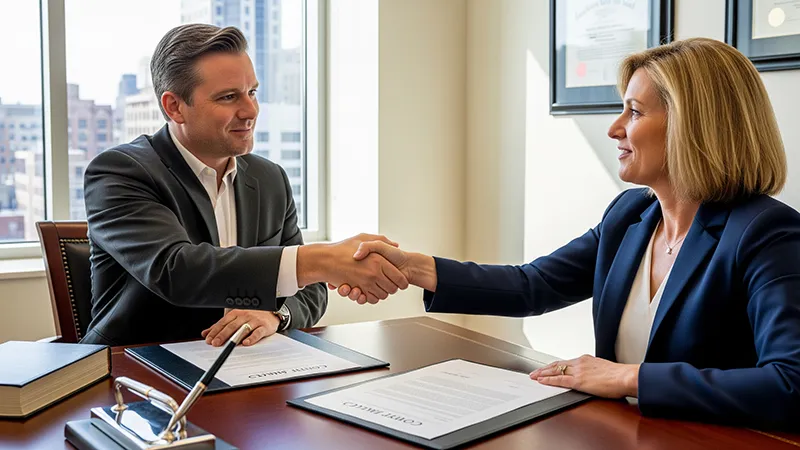
Given the intricate legal requirements, strict formalities, and potential administrative hurdles involved in granting a Power of Attorney in Turkey, engaging a knowledgeable Turkish lawyer is not merely an option but a highly recommended, often indispensable, step.
Why Engaging a Turkish Lawyer is Highly Recommended
A Turkish lawyer provides invaluable assistance throughout the PoA process. Their expertise ensures expert drafting tailored to specific needs, meeting Turkish specificity requirements and avoiding omissions. They minimize representation risks by preparing specific texts for consulates abroad , streamline foreign notarization , guide on legal limitations , and verify agent qualifications for litigation.
How Legal Experts Assist with Drafting, Review, and Process Navigation
A Turkish lawyer is a crucial intermediary, understanding both law and administrative expectations. They translate the principal's intent into a legally sound and administratively acceptable document, bridging foreign practices and Turkish realities, essential for complex transactions or foreign-issued PoAs. Their assistance includes compliance review (photo, ID, apostille) , troubleshooting and advocacy against institutional skepticism , and overall risk mitigation, ensuring the PoA's validity and acceptance.
Cost Considerations for Obtaining a PoA

The financial outlay associated with obtaining a Power of Attorney for use in Turkey can vary significantly, influenced by several factors related to the complexity of the document and the location of its issuance.
Factors Influencing Costs: Local vs. Foreign Issuance, Translation, Apostille Fees
PoA costs in Turkey depend on document complexity and granted authorities. Foreign notarization is generally more expensive due to foreign notarization, translation, and apostille fees, reflecting increased complexity and validation layers. Sworn translator fees at Turkish consulates also add to costs. Lawyer fees, though an added expense, are a worthwhile investment to ensure PoA validity and acceptance, avoiding future complications.
Conclusion and Key Takeaways
Granting a PoA in Turkey allows remote affairs but requires meticulous attention to legal and administrative protocols. While straightforward locally, the process from abroad is complex, needing multiple authentication and translation layers.
Specificity in defining agent powers is paramount; omissions can invalidate the PoA. Mandatory notarization and, for foreign documents, apostille or consular certification, are crucial validation steps. Strict photo requirements for certain PoAs (especially land registry) are vital security measures, and the identification document type is critical, as some IDs are not accepted for high-value transactions.
Foreign-issued PoAs often face institutional skepticism from Turkish authorities (land registry, banks), even if formally correct, leading to delays or rejections due to a preference for direct oversight. Acceptance can vary by officer, highlighting the process's nuanced nature.
Given these complexities, a knowledgeable Turkish lawyer is indispensable. They guide the drafting of precise, compliant PoAs, anticipating and mitigating administrative hurdles and skepticism. They bridge foreign legal practices and Turkish realities, protecting the principal from risks.
To grant a PoA in Turkey, meticulous planning, thorough document gathering, and expert legal guidance from a Turkish lawyer are essential. These steps, especially when dealing with the complexities of the real estate market in a city like Istanbul, ensure the PoA is valid, effective, and accepted, allowing smooth and secure affairs.

 USD
USD
 TRY
TRY
 EUR
EUR
 IRR
IRR
 RUB
RUB

Comments